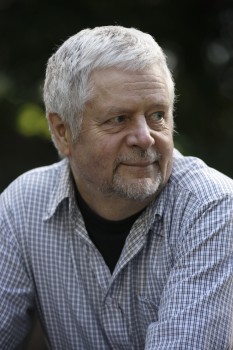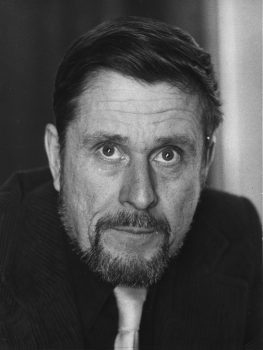Markku Envall
Issue 4/1986
| Archives online, Authors, Essays, Non-fiction

Markku Envall. Photo: Pertti Nisonen
With the passage of time a literary genre may continue, change or disappear. During the 1960s it was widely believed that the Finnish aphorism was dead. Modernism, which had consolidated its victory during that decade, was not favourable to the genre, and not one of the central figures of the post-war generation had touched the genre. Nevertheless, phoenix-like, the aphorism rose from the ashes, and by the 1970s it was strongly in evidence again, thanks, in the main, to just four writers, Mirkka Rekola, Paavo Haavikko, Samuli Paronen and Erno Paasilinna.
The renaissance took place between 1969 and 1972; in 1969 Mirkka Rekola’s first book of aphorisms was published, followed in 1972 by Paavo Haavikko’s. Rekola now has three books of aphorisms to her name, Haavikko four. The other two major aphorists have published one volume each. There have been a few other collections of aphorisms have appeared, but their authors are ‘merely’ aphorists, while these four are recognised as major authors in other fields too.
What was new in the renaissance of the aphorism? The question is easiest to answer in respect of the three men; Rekola is in many ways an exception. There were two major new features, one concerning meaning, the other form. The subject matter of the new writers was broader than the wisdom and teachings about life encompassed by the traditional aphorism. Their main subjects were nothing if not ambitious; the nature of the world, the progress of history, the structure of society. More…


